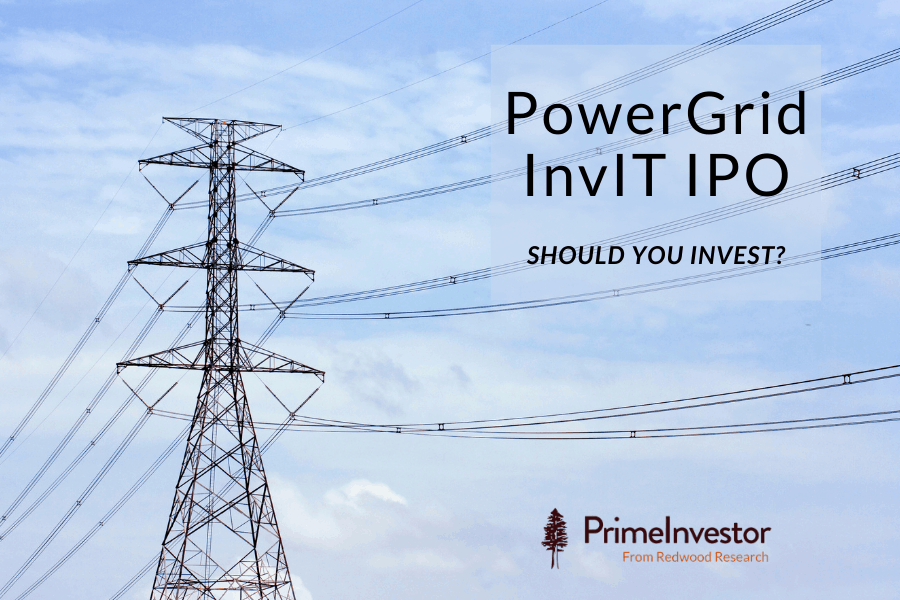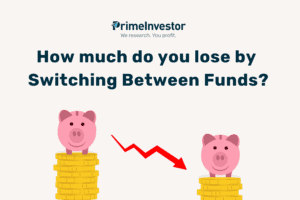POWERGRID Infrastructure Investment Trust (Powergrid InvIT) is the third InvIT and the second in the power transmission space (the other being IndiGrid InvIT) to be listed in the Indian stock markets. It is sponsored by listed PSU Power Grid Corporation of India (PGCIL and henceforth called the Sponsor).
Please find an explanation of what an InviT is here. This article will give you only our quick take on the offer and whether it is suitable for you. It is not a deep dive into the InvIT’s business and financials.
But before that you need to know how InvITs work as an investment product for you.
How InvITs work as investment products
InvITs are hybrid investment products – they have some features of debt and some of equity. The debt features come from the requirement that these instruments should distribute 90% of their net income to unitholders. This will be in the form of interest, dividend, or other payments. Such cash pay-outs come from the underlying assets that the InvITs hold. For example, the transmission charges that the PGInvIT receives is the primary revenue source that generates cash flow. This is adjusted for various expenses to arrive at what is called the net distributable cash flow, which is then paid out to you.
The equity feature comes from the capital appreciation in the price of InvIT units. This happens either because the underlying assets become more lucrative or more commonly, because more assets are added to the portfolio of the InvIT.
Simply put, your profit/return comes in two forms:
- Interest, dividend, or other pay-outs. Typically, the first are quarterly payments.
- Capital appreciation or depreciation if any.
But InvITs also suffer because they are in between equity and debt – InvITs can neither boast of being a full-fledged equity growth vehicle nor can they claim to be a safe/steady income-generating option. Here’s why.
Quasi-equity: Unlike stocks, InvITs cannot be expected to be high-growth, wealth generation stories as they are primarily vehicles that will distribute their profits and largely depend on debt to add to assets to expand. And if the assets they choose are suboptimal or bad, or their income generation capacity goes down, it impacts the income part of your investment as well, which in turn reduces the InvIT’s attractiveness which reflects in its market price.
IRB InvIT for instance is now at half the price at which it listed in 2017 due to several unfavourable factors. The other listed play Indigrid did better by aggressively adding assets. Yet, the appreciation in its unit listed price (not including distribution) was at 6.3% annually since June 2017. The point here is that these are not meant to be wealth builders to your portfolio.
No fixed coupon income: Unlike a deposit or bond, InvITs are not required to pay you a fixed coupon/interest rate. They are required to distribute 90% of the net cash flows (after interest cost, other expenses and deductions, trust management fee etc.)
The pay-out here is measured by the ‘yield’ – which is nothing but the pay-out per unit you receive divided by the price at which you bough the InvIT. However, this term yield is different from debt instruments. In debt, the numerator – the interest or coupon amount is fixed. Only your bond price may vary. However, here, the numerator, the distribution per unit can also vary. Hence, it is not similar in risk or return to a pure debt instrument.
Taxation complexity: The tax impact for you depends on the way the InvIT distributes the pay-out. The interest distributed on InvITs is taxable and a withholding tax of 10% is deducted. For dividend, there is an added layer of complexity. Dividend distributed is taxable in your hands if the underlying assets (special purpose vehicles or SPVs) have opted for beneficial tax regime under Section 115BAA of the Income Tax Act. Otherwise, they are exempt. If they are taxable, then withholding tax applies.
In the case of PGInvIT, while there is no mention of 115BAA benefit being availed, there are some tax holidays in some of the SPVs and hence it is not quite clear whether the dividends are taxable or not. You would need to look up to the InvIT to clarify this. Most InvITs and REITS put out a note on taxability.
Capital gains taxation is similarly a blend between equity and debt taxation. If you hold a listed InvIT and sell it in the market (STT paid) within 36 months, you will have short term capital gains at 15% (plus surcharge and fees). For holding period longer than 36 months, it is long term gains taxed at 10%. (for gains more than Rs 1 lakh, including LTCG in other instruments like stocks).
Summary: InvITs are more risky than regular debt instruments and hold less return potential than regular equity instruments.






16 thoughts on “PowerGrid InvIT – should you invest?”
This is something I should take time to read and to know more information about power grid invit . I absolutely love how you down it.
https://www.indigrid.co.in
TL;DR: AVOID for most people!
Can these units be bought and (more importantly) sold freely like a stock? If yes, what is the liquidity expectation?
Yes. Will be known only when they list, based on demand supply. thanks, Vidya
Dear Madam: Thanks for your analysis. Could you please tell us if the issue will be reasonably liquid post listing. Regards!
Will know only post listing. thanks, Vidya
Well written and analysed. Thanks a ton. So in effect, will it be advantage powergrid ? will it help reduce the debt that they carry on their books?
Warm Regards
Shravan
Sorry, if I did not convey right. We only said it is better placed if one is looking at growth compared with the InvIT. it is not a recommendation among stock opportunities 🙂 Also, this is not a call on PGCIL. thanks, Vidya
Hello, Since debt of powergrid will be reduced now, whether powergrid can be bought? Also in this case the value of operational assets will not be on its books since it has been transferred out? What will be the impact of this hive off on powergrid (not InvIT) business? Can you pl. Clarify?
What will be the rationale for buying powergrid instead of InvIT?
This is beyond the ambit of this discussion and also we did not say buy PowerGrid instead of Invit. We said, the parent and invit are trading at similar valuations with parent commanding higher margins. thanks, Vidya
Out stock discussions are restricted to those in our Prime stocks coverage. thanks Vidya
In the midst of all marketing hype of this InvIT, a calm analysis such as this was most wanted. Clearly articulated !
Thank you! 🙏 Vidya
Good analysis. You started the article with a comment this product is suitable only for one type of investor. Which of investor?
Thanks. it is mentioned in the end, under subscriber section. thanks, Vidya
Comments are closed.